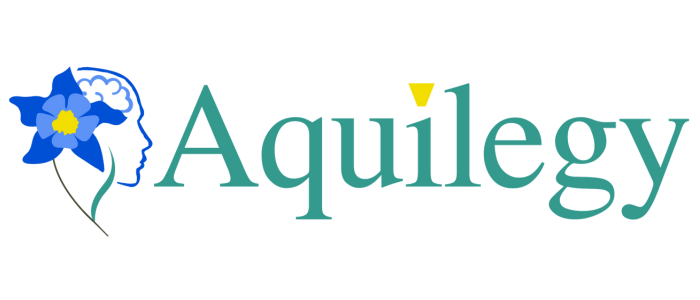The remarkable capacity of the brain for adaptation and growth is a testament to its complexity. Engaging in targeted cognitive activities is crucial for stimulating neurogenesis, the formation of new neurons within the brain. This process plays a significant role in maintaining cognitive health, particularly in areas responsible for memory and learning, such as the hippocampus. Various strategies can promote neurogenesis and enhance cognitive abilities. Mental challenges like puzzles and memory games encourage the brain to adapt, thereby improving its functionality.
Remarkably, physical exercise has also been well-documented to support neurogenesis and overall brain function. Research indicates that even moderate aerobic activity can significantly boost the production of brain-derived neurotrophic factor (BDNF), a key protein integral to neuron survival and growth.
- Physical exercise is linked with enhanced cognitive function.
- Regular mental exercises are beneficial for sustaining mental agility.
Dietary factors also influence neurogenesis significantly. Consuming nutritious foods rich in Omega-3 fatty acids, antioxidants, and essential vitamins such as B and D is paramount for brain health. Supplements like Aquilegy offer scientifically validated ingredients that support neuroplasticity and cognitive function, promoting overall wellness.
Emerging studies reveal the positive effects of mindfulness and stress management on brain health. Practices such as meditation create a more conducive environment for neurogenesis, highlighting the correlation between managing stress levels and enhancing cognitive function.
- What specific cognitive activities provide the best outcomes for neurogenesis?
- How does consistent physical exercise relate to improvements in brain health and cognitive abilities?
Exploring the connection between cognitive activities and neurogenesis reveals opportunities to enhance cognitive longevity. Individuals can actively take steps to manage their brain health and optimize cognitive performance.
Understanding Neurogenesis Benefits
The generation of new neurons within the human brain plays a pivotal role in enhancing cognitive health and overall well-being. Research shows that neurogenesis significantly aids in the alleviation of brain fog, particularly following alcohol consumption. Alcohol interferes with neurotransmission, which can lead to confusion and an inability to focus clearly. By promoting neurogenesis through various lifestyle adjustments, individuals may experience improved mood regulation and mental clarity.
- Impacts on Mental Health
- Neurogenesis supports emotional stability, effectively reducing anxiety and confusion.
- Increased neurogenesis has been linked to enhanced cognitive performance across diverse populations.
- Memory Enhancement
- Research indicates that improved neurogenesis correlates with enhanced memory retention and recall abilities.
- Promoting neurogenesis actively combats cognitive dysfunction following alcohol use.
- Exercise and Neurogenesis
- Aerobic exercise has demonstrated effectiveness in boosting neurogenesis, thereby improving overall brain function.
- This physical activity increases levels of brain-derived neurotrophic factor (BDNF), essential for neuronal health.
- Essential Nutrients
- Omega-3 fatty acids, along with vitamins B and D, are critical for supporting neurogenesis and overall brain health.
- Turmeric, renowned for its anti-inflammatory properties, also promotes cognitive function and neurogenesis.
The exploration of neurogenesis highlights its significance in alleviating brain fog and supporting sustained cognitive health. Integrating nutritional strategies, regular aerobic exercise, and engaging mental challenges can lead to meaningful improvements in mental clarity.
The Role Of Brain Exercises
Engaging in cognitive activities plays a significant role in enhancing overall mental agility. These exercises stimulate neuroplasticity, promoting the formation of new neural pathways. Consistently challenging the brain with various tasks can positively impact long-term memory and cognitive functionality.
- Introduction to Cognitive Activities
- Cognitive challenges are designed to enrich mental health and facilitate tissue repair in the brain.
- Such activities are closely connected to improved neuroplasticity and memory retention.
- Types of Effective Cognitive Activities
- Engaging in puzzles can stimulate thought processes and enhance problem-solving strength.
- Memory games are effective for improving recall abilities and boosting mental agility.
- Mindfulness practices, such as meditation, help lower anxiety levels and enhance concentration.
- Physical fitness routines increase blood circulation, offering substantial support for brain health.
- Impact on Mental Agility and Long-Term Wellness
- Research demonstrates the beneficial effects of frequent cognitive activities on mental agility.
- Regular engagement in challenging tasks is associated with increased neurogenesis and improved emotional balance.
- Techniques to Alleviate Cognitive Fog
- Specific techniques, like focused breathing exercises, can significantly help reduce cognitive fog.
- Incorporating conscious cognitive activities into one’s daily schedule benefits overall mental clarity.
Cognitive activities are essential for enhancing mental capabilities. Exploring lifestyle changes alongside nutritional support, such as those offered by supplements like Aquilegy, can further promote brain health and function.
Cognitive Activities
- Engaging in cognitive exercises can lead to a 20% improvement in memory retention over time.
- Studies show that individuals who regularly solve puzzles have a 30% lower risk of developing cognitive decline.
- Mindfulness practices can reduce anxiety by up to 40%, enhancing overall mental clarity and focus.
- Regular physical activity is linked to a 25% increase in neurogenesis, contributing to better brain health.
How To Enhance Cognitive Function
Enhancing cognitive abilities can lead to improved mental clarity and overall brain health. Brain fog, often resulting from alcohol consumption, can diminish cognitive function and may persist for several hours to days.
Recognizing the symptoms of brain fog, including confusion and diminished focus, is vital for effective management.
- Understanding Brain Fog
- Brain fog encompasses cognitive dysfunctions such as confusion and lapses in attention.
- Alcohol consumption leads to dehydration and neuroinflammation, significantly affecting cognitive function.
- Importance of Nutritional Support
- Omega-3 fatty acids are crucial for enhancing neurogenesis and improving cognitive recovery.
- Antioxidants play a significant role in reducing oxidative stress on the brain.
- B Vitamins (B6, B9, B12) and Vitamin D are fundamental for sustaining brain health.
- Physical Activity and Cognitive Health
- Aerobic exercise benefits cognitive function by increasing blood flow to the hippocampus.
- Regular physical activity enhances mental clarity and supports long-term brain health.
- Mental Exercises for Cognitive Improvement
- Engaging in challenging mental activities stimulates neurogenesis and enhances cognitive skills.
- Activities like puzzles, memory games, and learning new skills are particularly beneficial.
- Effective Lifestyle Changes
- Staying hydrated is essential to mitigate brain fog and support cognitive function.
- Prioritizing quality sleep is crucial for cognitive recovery, particularly after alcohol consumption.
- Incorporating brain-boosting foods such as turmeric supports cognitive function and reduces inflammation.
- Closing Recommendations
- Consult healthcare professionals for tailored strategies to boost brain health.
- Practicing mindfulness and moderating alcohol use can restore cognitive clarity effectively.
Nutrition greatly impacts cognitive capacities. Omega-3 fatty acids are vital for facilitating neurogenesis, assisting in the creation of new neurons in the brain. Regular aerobic exercise increases blood flow, positively influencing the hippocampus, a critical area for memory retention. Adequate hydration reduces inflammation that can impair mental clarity, while effective mental exercises contribute significantly to enhancing cognitive performance.
Unique Points of Interest
- Participating in cognitive challenges fosters brain adaptability and promotes neurogenesis, which enhances cognitive health.
- Regular physical activity has been shown to improve memory and mood, contributing to long-term brain function.
Awareness of these hidden cognitive influences proves beneficial for optimizing brain health. Previously, techniques for mental clarity were discussed, and the focus now shifts to practical strategies to boost brain health, emphasizing methods to protect and enhance your cognitive capabilities.
The Connection Between Mind And Body
Maintaining a harmonious relationship between mental and physical health significantly impacts overall well-being. Cognitive dysfunctions, often manifesting as brain fog, can be triggered by several factors, including excessive alcohol consumption. Dehydration resulting from alcohol intake disrupts sleep and promotes neuroinflammation, which adversely affects cognitive function. Research indicates that sustained aerobic exercise promotes hippocampal neurogenesis in different regions in the brain, reinforcing the connection between physical activity and mental clarity.
Regular engagement in physical exercise enhances blood flow to the brain, which is vital for memory retention and cognitive performance.
- Understanding Brain Fog: Brain fog refers to confusion, lack of focus, and forgetfulness.
- Impact of Alcohol on Brain Health: Alcohol can increase dehydration and disrupt sleep patterns.
- Stress Management Techniques: Mindfulness and physical exercise can help reduce stress levels.
- Nutritional Support for Cognitive Function: Omega-3 fatty acids, vitamins B and D, and antioxidants are crucial for brain health.
- Mind and Body Integration: Physical exercise supports both bodily health and cognitive function.
Investigating dietary choices can enhance mental clarity and diminish anxiety. Practices like mindfulness and aerobic exercise are interconnected and yield positive effects on synaptic plasticity. Embracing physical activity can lead to improvements in cognitive efficiency, contributing to effective stress management. For those seeking additional brain support, Aquilegy offers a transparent, science-backed supplement to aid memory and mood. Its key ingredients, including Vitamin D and B vitamins, enhance neurotransmitter production and overall brain health. Prioritizing mental and physical well-being can yield remarkable benefits for cognitive clarity and emotional balance.
Mental and Physical Health
- Cognitive dysfunctions, such as brain fog, can be exacerbated by factors like excessive alcohol consumption.
- Regular aerobic exercise has been shown to promote neurogenesis in the hippocampus, enhancing cognitive function.
- Mindfulness practices and physical exercise are effective in reducing stress levels and improving mental clarity.
- Nutrients like Omega-3 fatty acids and vitamins B and D play a crucial role in supporting brain health and cognitive performance.







